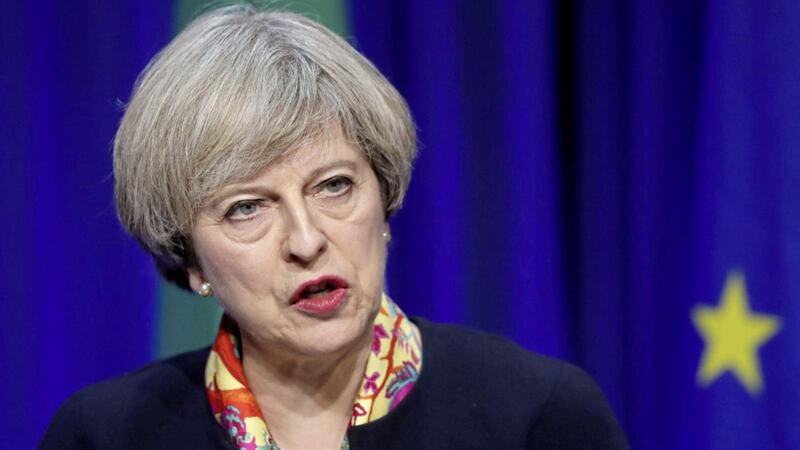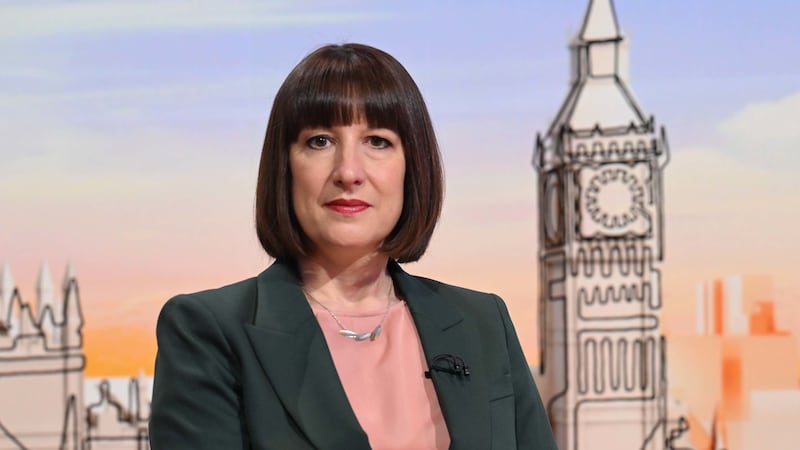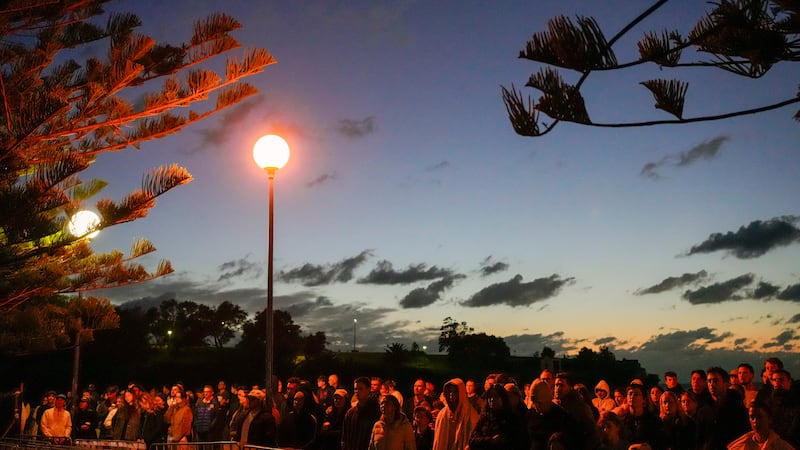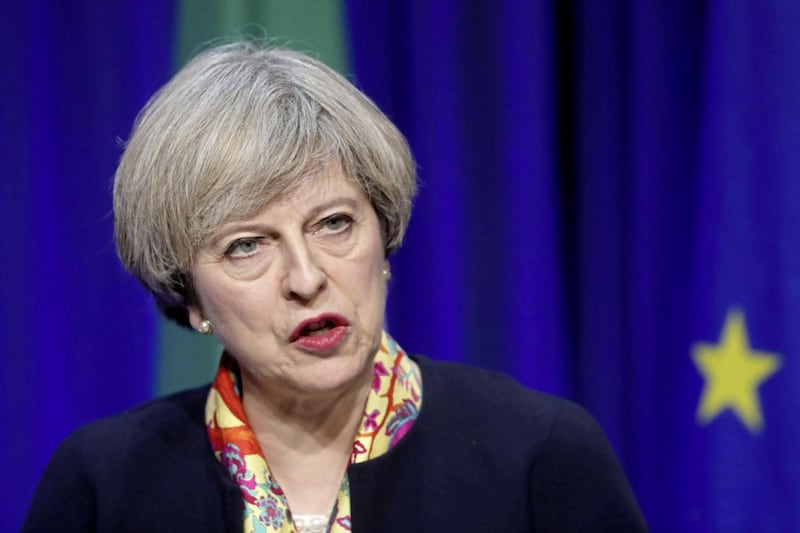THERESA May has admitted there is "a lot to be done" in Brexit negotiations amid reports that Cabinet ministers believe talks on a future trade relationship could be delayed until Christmas.
The British prime minister said there has been a constructive and positive start to the first phase of talks, focused on the so-called "divorce bill", citizens' rights and the border between the north and Republic.
But she did not directly address reports that Cabinet ministers involved in the negotiations have privately indicated they think progress to the second phase – focused on a post-Brexit EU trade deal – may not happen until December.
Despite predicting the "row of the summer" over the sequencing of negotiations, Brexit Secretary David Davis in June accepted the European Union's proposed timetable.
The aim now for both sides is to make "sufficient progress" by October's European Council summit of EU leaders to get approval for talks on a future trade deal.
But commenting on Sky News reports that next month's federal elections in Germany could have an impact on the process, Mrs May told reporters in Powys, Wales: "It's good that we've had a constructive, positive approach to the negotiations so far and those negotiations are continuing and we are working with the European Union.
"There's a lot to be done, as a government we have shown the work that we are putting into this, we have published recently just in the last few days a number of papers that set out our thinking on some of those key issues for the future relationship.
"We will develop a deep and special partnership with the European Union for the future that's good for the UK and it's good for the EU as well."
Mrs May also reiterated that the free movement of EU citizens will end amid reports that the Home Office is developing plans to ensure they are free to travel and live in Britain post-Brexit.
The Times said the proposals, which are not agreed across government nor finalised, suggest EU nationals would not be required to apply for a work visa to visit Britain to look for a job.
The newspaper also said the government would seek to limit the number of people migrating to work in the UK via a system of permits, which would vary for different sectors.
Mrs May said: "First of all we're establishing, the Home Office is working on, the immigration rules that will apply when we've left the European Union.
"What we do know is that we will see an end to free movement as we have seen as members of the European Union, that won't apply in the future.
"We will have immigration rules and those will be for people coming from inside the European Union as today we have rules for people coming from outside the European Union.
"What's important is that we're developing those with a recognition of the importance of ensuring we can still welcome people from European Union countries to work and to visit the United Kingdom in future and ensuring we do that in the best and fairest way possible."
The need for progress in exit talks was spelled out this week when EU chief negotiator Michel Barnier reacted to the government's publication of a paper on potential future customs arrangements by insisting there must be agreement on phase one before a discussion on trade.
After the last round of talks, he asked for clarification from Britain on a number of issues and warned of "fundamental" disagreements over citizens' rights, including on the role of the European Court of Justice in enforcing them.
Philip Hammond earlier this month delivered a less-than-certain verdict that EU trade talks would begin this autumn.
Speaking in Brazil, the Chancellor said there was "hope" from the UK that negotiations over future relations with the EU would begin in the autumn.
His assessment contrasted with a more upbeat tone adopted by Mr Davis.
Their remarks came after reports suggested Mr Barnier believes the second phase of talks would be delayed by two months to December because of disagreements over how much the UK owes the bloc.
On Wednesday, the Department for Exiting the European Union said it was "confident" of making sufficient progress by October to begin trade talks.



